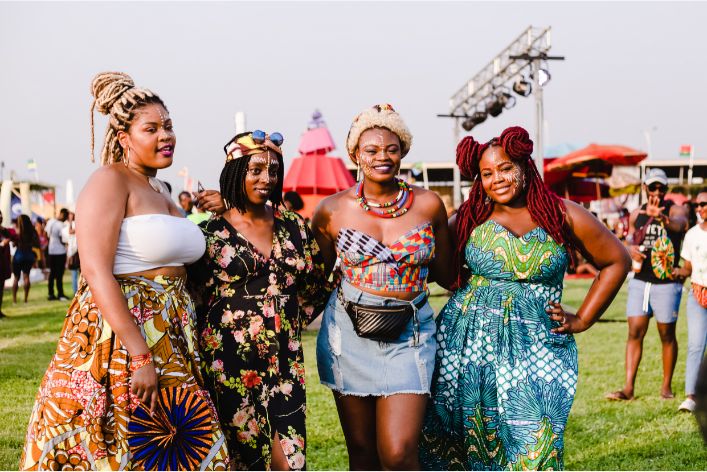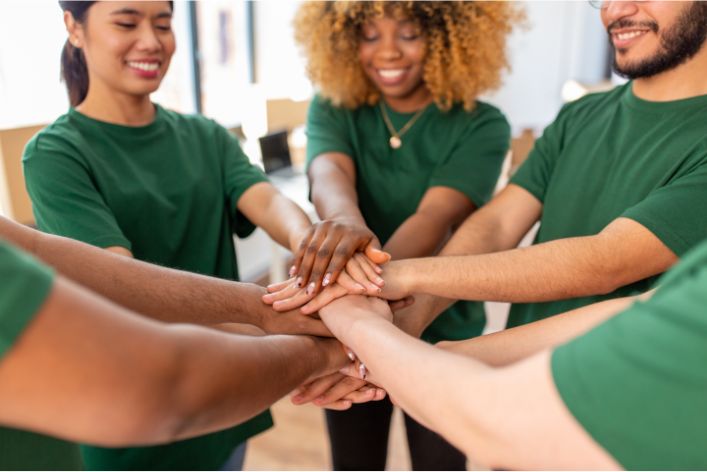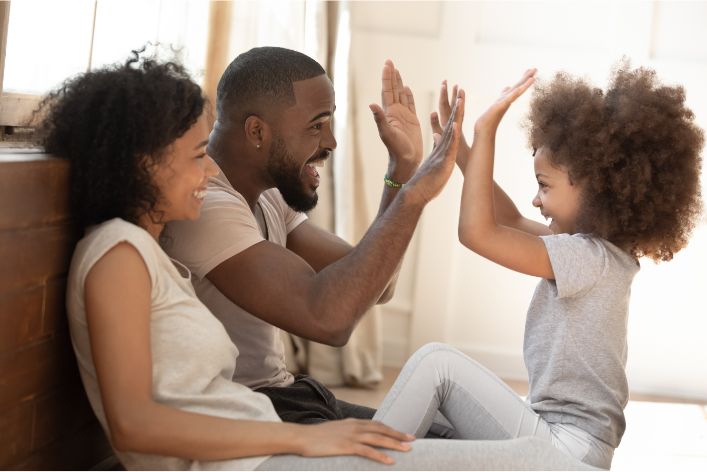Introduction
Family-friendly festivals are events that cater to the needs of all members of the family regardless of age. These festivals involve activities that can be enjoyed by people of all ages and backgrounds. Festivals encourage bonding among family members and promote culture, tradition, and heritage.
Festivals also provide an avenue for relaxation, fun, and entertainment.
In Nigeria, family-friendly festivals play a significant role in maintaining cultural heritage and promoting unity among families. They serve as opportunities for people to come together and celebrate their culture, traditions, and customs. Festivals in Nigeria have significant economic, social, and cultural benefits.
Family festivals provide an avenue for entrepreneurs to showcase and sell their products, which in turn translates into revenue for their businesses.
Festivals also boost the tourism industry, as people from different parts of Nigeria and beyond travel to attend these events.
Socially, festivals bring families together, promote unity, and strengthen social relationships. Children get to learn about their heritage, culture, and tradition while having fun with their families.
Festivals play a key role in preserving Nigeria’s diverse cultures, languages, and traditions.
In general, family-friendly festivals are an important aspect of Nigerian culture, serving as a platform for promoting culture, tradition, heritage, and unity. They bring people together, create opportunities for entrepreneurs, and provide fun and entertainment for families.
Festivals in the First Quarter of the Year
The first quarter of the year is always a time of great excitement in Nigeria, with lots of family-friendly festivals to look forward to. Here are some of the best ones to choose from:
Lagos Carnival
The Lagos Carnival is a celebration of the city’s culture and vibrancy, which takes place every year in February. It’s a colorful and joyous occasion that draws crowds from far and wide.
The festival features street parades, music, dance performances, and traditional costumes that capture the essence of Lagosian culture. It’s an event that caters to all ages, with plenty of activities for kids.
Argungu Fishing Festival in Kebbi State
The Argungu Fishing Festival is one of the oldest and most popular festivals in Nigeria, and it takes place every year in March.
The festival is an opportunity to celebrate the rich fishing culture of the people of Kebbi State, and it attracts crowds of tourists and visitors from other parts of the country.
The highlight of the festival is the fishing competition, where participants try to catch the biggest fish in the local river.
Olojo Festival in Ife, Osun State
The Olojo Festival is a cultural celebration of the Yoruba people, which takes place every year in Ife, Osun State. The festival marks the creation of the world and the coronation of the first Ooni of Ife, who is traditionally regarded as the father of all Yoruba people.
Parenting Made Just for You
Get personalized Parenting Solutions tailored to your child’s needs. Transform your parenting journey with expert guidance in 1-3 days.
Get StartedThe festival typically features street parades, traditional dances, colorful costumes, and plenty of delicious food. It’s a family-friendly event that caters to all age groups.
These festivals are just a few of the many family-friendly events that take place in Nigeria throughout the first quarter of the year. They offer a wonderful opportunity to experience the culture and traditions of the different regions of Nigeria and to create lasting memories with your family. So, mark your calendar and get ready to have a great time!
Read: Top Nigerian Books for Children to Spark Imagination
Festivals in the Second Quarter of the Year
The second quarter of the year is marked with a variety of family-friendly festivals across Nigeria.
From the vibrant city of Lagos to the serene state of Osun, there is a festival to suit everyone’s taste.
Here are some festivals to look out for:
Eyo Festival in Lagos
For centuries, Lagos has celebrated the Eyo Festival, a cultural extravaganza also known as the Adimu Orisa Play. The festival, held in April, commemorates the death and resurrection of the Adimu Orisa (Eyo), one of the earliest spirits on earth.
During the festival, costumed dancers called “Eyo” parade through the streets in a colorful procession. The Eyo wear a traditional dress consisting of a white robe, a hat, and a flowing veil.
The festival brings together people from different parts of Lagos to celebrate the city’s heritage and culture. Visitors can expect an array of cultural foods, music, and bazaars to experience.
Osun Osogbo Festival in Osun State
Osun Osogbo Festival is a yearly celebration that holds in the serene town of Osogbo, Osun State, Nigeria.
The festival celebrates the river goddess Osun, believed to bring protection and prosperity to the town. People hold the Osun Osogbo Festival in August, and it can span up to two weeks.
The highlight of the festival is the blessing of the Osun River by the Arugba, a young virgin girl that carries the ritual calabash on her head.
The calabash contains sacrificial items that are offered to the river goddess Osun. The festival also features a parade of traditional drummers and dancers, and a beauty pageant that promises an exhilarating experience to visitors.
New Yam Festival in Various Igbo Communities
Various Igbo communities in Nigeria celebrate the New Yam Festival, also known as Iriji or Iwa Ji. The festival, held in August, involves a thanksgiving ceremony to the gods for a bountiful harvest. During the festival, the first harvested yam is offered to the gods before consumption.
Unveil the Perfect Name that Tells Your Family's Story
Let us help you find a name that embodies your family's values, traditions, and dreams. Our personalized consultation weaves cultural insights to create a name that's uniquely yours.
Get StartedBoth young and old participate in the New Yam Festival, which typically features cultural dance performances and masquerades.
Visitors can also expect traditional dishes such as pounded yam, Egusi soup, and Obiuto, a delicacy made from mashed yam mixed with spicy red palm oil sauce.
Overall, the second quarter of the year is an exciting time to experience the cultural diversity of Nigeria through family-friendly festivals. So why not pack your bags and join in the cultural festivities that celebrate Nigeria’s rich heritage?
Read: Tips for Planning a Family Beach Day in Nigeria
Festivals in the Third Quarter of the Year
If you’re looking for a fun-filled way to spend your third quarter of the year, look no further than Nigeria.
This country has a rich culture and is known for its vibrant festivals that are celebrated all year round.
Here’s a list of family-friendly festivals in Nigeria in the third quarter of the year:
Abuja Carnival
The Abuja Carnival is a vibrant festival that takes place in the capital city of Nigeria, Abuja. The festival, which usually takes place in November, is a celebration of Nigeria’s diversity in culture, music, and art.
Activities during the carnival range from street parades to concerts, art exhibitions, and cultural dance performances. There is something for everyone at the Abuja Carnival, so bring the whole family along.
Ofala Festival in Onitsha, Anambra State
People in Onitsha, Anambra State celebrate the Ofala Festival, a cultural event held annually in September. It is a celebration of the kingship and the rich culture of the Igbo people.
During the festival, the Obi of Onitsha, the traditional ruler, dresses in his full regalia and leads a procession through the town.
During the festival, people can enjoy cultural dances, live music performances, and indulge in delicious food. The Ofala Festival is a family-friendly event that offers something for everyone.
Durbar Festival in Kano, Kano State
The people of Kano, Kano State, celebrate the Durbar Festival with great enthusiasm and vibrant colors during Eid al-Fitr and Eid al-Adha. It is a celebration of the Islamic culture and traditions of the people of Kano.
The festival features the Emir of Kano leading a procession of horsemen dressed in vibrant costumes and wielding spears. The town witnesses cultural dances, music performances, and an abundance of food to enjoy with loved ones.
Attending any of these festivals can be a great way to learn more about the culture of Nigeria and spend quality time with your family. Just remember to come prepared with comfortable footwear, sunscreen, and water, as some of these festivals can be quite crowded and involve a lot of walking around.
Read: Music Lessons for Kids in Nigeria: A Parent’s Guide

Festivals in the fourth quarter of the year
The last quarter of the year in Nigeria is usually characterized by an array of glittering festivals, all offering a blend of culture, tradition, and fun. Here are some must-see festivals to take part in:
1. Calabar Carnival
Every December, the city of Calabar in Cross River State becomes the hub of fun in Nigeria with the Calabar Carnival. The carnival brings together people from different walks of life to celebrate the rich and diverse culture of Nigeria.
The carnival parade features colorful costumes, music, and dance showcasing the country’s various ethnic groups. It is a month-long event, starting from November and ending on December 31st with a grand fireworks display.
2. Ojude Oba Festival in Ijebu-Ode, Ogun State
The Ojude Oba festival is an annual event that celebrates the culture and tradition of the Ijebu people in Ogun State.
The festival usually takes place in August, but the grand finale is held on the third day of the Eid-el-Kabir holiday, which usually falls in the fourth quarter of the year.
During the festival, sons and daughters of the town dress in colorful attires, parade the streets of Ijebu-Ode, and pay homage to the Awujale, the paramount ruler of Ijebuland.
3. Festival of Lights in Jos, Plateau State
The Festival of Lights in Jos is an annual event that takes place in December. As the name suggests, the festival is a carnival of lights, featuring an array of colorful lights that illuminate the streets of Jos.
During the festival, there are street parades, live music performances, and a Christmas village where visitors can buy souvenirs and enjoy local delicacies.
The Festival of Lights is a family-friendly event, and it is a great way to kick off the Christmas season in Nigeria.
These festivals offer a great opportunity for families to bond, explore new cultures, and experience the rich diversity of Nigeria. Whether you choose to attend the Calabar Carnival, the Ojude Oba festival, or the Festival of Lights in Jos, you are sure to have a memorable experience.
Read: Creative Art and Craft Ideas for Nigerian Parents
Tips for Enjoying Family Festivals in Nigeria
Attending a family festival in Nigeria can be an unforgettable experience full of fun, learning, and bonding. To ensure that you get the most out of your festival experience. Here are some helpful tips:
1. Plan ahead
Before attending any festival, it’s essential to gather information about the event to know what to expect. This information can be found online or by speaking to friends who have attended similar festivals. Checking the festival’s dates, location, dress code, and schedule will help you plan effectively.
2. Dress appropriately
It’s important to dress for comfort, but also in a responsible and appropriate manner. Festivals in Nigeria usually have themes, and it’s courteous to adhere to them. Dressing in the traditional attire of the festival’s host community or culture makes the experience more enjoyable and helps promote cultural awareness.
3. Be mindful of safety
Large crowds and bustling atmospheres can be overwhelming, especially for children. It’s essential to be mindful of your surroundings, stay alert, and keep a close eye on children. Ensure that you drink from trusted vendors, secure your valuables, and avoid walking home alone, especially at night.
4. Embrace the culture
Festivals offer an opportunity to experience Nigeria’s rich and diverse cultural heritage. Embrace the culture by engaging in traditional dances, sampling local food, purchasing souvenirs, and participating in cultural activities. It’s also an opportunity to connect with people from different backgrounds and make new friends.
Additionally, here are some other tips to make the most out of family festivals in Nigeria:
5. Arrive early to avoid long queues
Arriving early helps you avoid long queues, ensuring you get a chance to experience everything on offer before the festival gets overcrowded.
6. Bring appropriate supplies
Ensure that you bring sunscreen, water bottles, hand sanitizers, and food items for those who may have dietary restrictions. This helps you save money and avoid queuing for basic necessities at inflated prices.
7. Participate in the festival’s activities
Festivals typically have a range of activities, from competitions to crafts. Participating in these activities offers fun for the whole family and creates unforgettable memories.
8. Take pictures and videos
Finally, taking pictures and videos is a great way to document family events and preserve memories. Ensure that you capture all the fun moments and create a lasting record of your family’s experience.
In a nutshell, family festivals in Nigeria offer a chance to experience the country’s rich culture, connect with new people, and create lasting memories. By planning ahead, dressing appropriately, being mindful of safety, and embracing the local culture, you’re sure to make the most out of your festival experience.
Read: Cooking Nigerian Dishes with Kids: Fun & Learning
Conclusion
There are several family-friendly festivals in Nigeria that take place throughout the year. These festivals provide an opportunity for families to come together and enjoy various activities, foods, and music.
Some of the festivals include the Lagos Carnival, Eyo Festival, Calabar Carnival, Osun-Osogbo Festival, and Durbar Festival. These festivals showcase Nigerian culture, beliefs, and traditions.
Attending festivals with family members is an excellent way to bond and create lasting memories. These events provide a platform for parents and children to learn about their heritage and appreciate their cultural diversity.
On a final note, Nigerian family-friendly festivals are not only fun, but they also serve as an educational tool for the younger generation.
They instill a sense of national pride and promote unity among families and communities. Nigerians should continue to embrace these festivals and ensure they are passed down to future generations.




